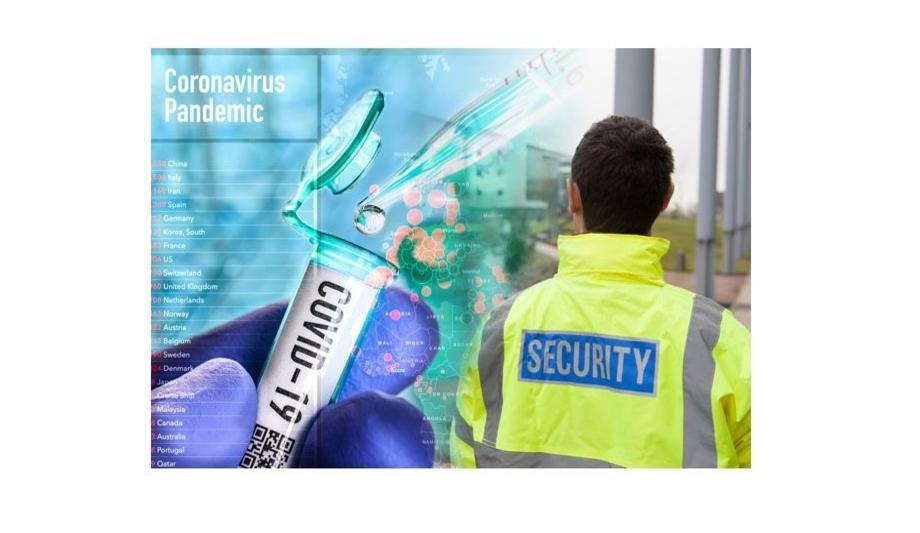There are a number of factors that may be contributing to security officers having one of the highest death rates of any occupation, according to a new report commissioned by Corps Security from Perpetuity Research and Consultancy International. The Office for National Statistics published data in May which revealed that security officers have one of the highest death rates from COVID-19 - 45.7 deaths per 100,000 people.
The seven issues the research points are as below:
Low-paid jobs, proximity, higher age
- Low-paid occupations were found to have high rates of death involving COVID-19 and front-line security is typically low-paid.
- The role of security officers generally involves close proximity and frequent interactions with others, and this was found to be a significant risk factor for contracting COVID-19, albeit it is not known whether security officers generally worked in a similar way in the crisis.
However, their risk factor relating to exposure was not rated as high as healthcare personnel; the level of virus found in healthcare settings is much greater than among the general public yet death rates for healthcare staff are lower than for security officers. - Older people appear to be more vulnerable to COVID-19 compared to their younger counterparts and experience less favourable outcomes.
Analysis of licences issued by the Security Industry Association (SIA) in 2019 suggests that 21% were obtained by those over 55 years of age, compared to the UK average for all occupations of 19% of the workforce in that age group. Yet 42% of those with a manned guarding licence, were issued to those over 55 years of age.
Males, ethnicity, reduced hand washing
- More men than women have been affected by COVID-19 and because approximately 90% of security personnel are men, the risk factor for the sector overall is higher than occupations with a lower proportion of males.
- Not all groups in the UK have been affected by COVID-19 equally and ethnicity appears to be a significant risk factor. Nearly a third of security officers are from Black, Asian, and minority ethnic (BAME) backgrounds and vulnerability is linked to both genetic, social and economic factors. Within this group, Black Africans, Pakistanis and Bangladeshis appear to be particularly vulnerable and they are overrepresented among security officers.
- The very nature of the role of security officers influences their risk to COVID-19. Being a frontline key worker may mean encountering conflict when trying to enforce COVID-19 guidelines; this may make social distancing more difficult. They also have to touch equipment and technology others have handled on a regular basis and may find it difficult to ensure they carry out frequent hand washing.
- Many security roles are located in major cities and some of these, particularly in London, the Midlands and south-east have been particularly hard hit by COVID-19, affecting the vulnerability of those working there.
The full report can be downloaded from the website. The research was carried out through desktop analysis of a number of data sources.
Protection for security professionals
“The ONS data made for difficult reading for the security profession. We wanted to know why security officers were so affected by the virus so we could better support and protect our people. This report gives us valuable insight and we’re delighted to share it with the wider security sector so we can work together and do all we can as an industry to ensure no more security officers die as a result of this terrible virus,” said Mike Bullock, CEO of Corps Security.
“We were delighted to research this key area for Corps,” said Martin Gill, Director of Perpetuity Research and one of the report’s authors. “The true picture is complex, with some risk factors almost certainly interrelated, may still be emerging, or even not yet identified. What does seem clear though from this preliminary research is that gender, ethnicity, the nature of the job have all been seen to increase risks and these are all characteristics of security officers.”






















